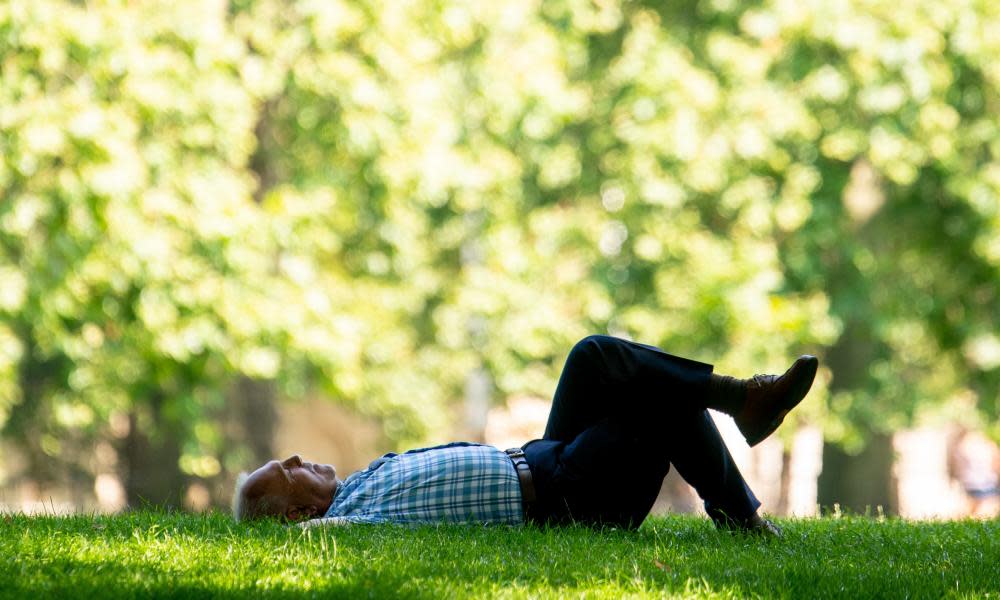UK heatwave: how to identify, prevent and treat heatstroke

With temperatures in the UK rising amid a summer heatwave, experts have warned the public to be on their guard against heat exhaustion and heatstroke, which can be life threatening. We take a look at how to spot the signs:
What are the signs of heat exhaustion?
Heat exhaustion can occur after prolonged exposure to high temperatures.
According to the NHS, the main symptoms include headache, feeling sick, dizziness and confusion, excessive sweating, loss of appetite, arm, leg and stomach cramps, a fast pulse and feeling very thirsty.
In addition, children may become floppy or sleepy.
While heat exhaustion is not usually serious, it is important that the affected person drinks plenty of water and cools down, for example by using cold packs around the armpits, or using a fan.
What about heatstroke?
Heat exhaustion can develop into heatstroke, a condition that occurs when the body can no longer cool itself down. It can be fatal.
While people with heat exhaustion typically feel better after cooling down and drinking water, those with heatstroke may continue to feel unwell.
Those with heatstroke may also experience shortness of breath, confusion and a temperature of 40C or higher.
In contrast to heat exhaustion, people experiencing heatstroke may also stop sweating even though they feel very hot.
Other important signs include someone having a fit, losing consciousness or becoming unresponsive.
Should heatstroke be suspected, it is crucial to call 999.
Who is most at risk?
While anyone can get heat exhaustion or heatstroke, the NHS says that some people are at greater risk than others, such as babies and young children, older people and people with chronic health conditions such as diabetes.
The UK Health Security Agency (UKHSA) has also warned that people who do outdoor activities that require high levels of physical exertion may also be at increased risk, which could include manual workers and athletes.
People who live in top floor flats may also be at greater risk, the NHS said, as well as those who may not be able to adapt their behaviour to stay cool, such as people with Alzheimer’s disease.
How can heat exhaustion and heatstroke be prevented?
The UKHSA recommends staying out of the sun between 11am and 3pm, and avoiding physical exertion during the hottest part of the day.
It also advises staying in the shade, wearing sunscreen and a hat, drinking plenty of fluids, carrying water when out and about, and avoiding alcohol.
It is also important to not leave children or animals in cars, even with the windows open.
To keep cool inside, NHS advice includes closing curtains in rooms that face the sun, and keeping windows and doors shut if it is hotter outside than inside.
Looking out for others also matters, particularly those who may find it hard to keep cool or hydrated.


